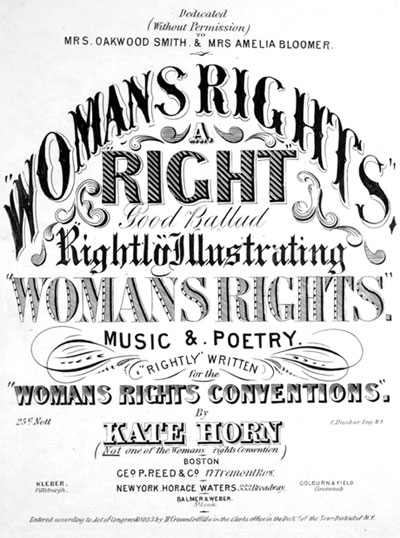Women's Reform Movement
"Womans Rights" Sheet Music (1853)
Annotation
Sheet music was popular in middle-class families and it sometimes addressed issues of the day. This 1853 song by a woman composer, Kate Horn, expresses a different view of Women's Rights from the Seneca Falls one. Minstrel shows, catering to a working-class white male audience, likewise featured parodies of Women's Rights advocates. The "Mrs. Oakwood Smith" in the dedication was a minstrel show character who did such parodies. What is the significance of the other dedication to Amelia Bloomer?

Citation
Horn, Kate. "Womans Rights..." Boston: Geo. P. Reed, 1853. Lester S. Levy Collection of Sheet Music, John Hopkins University. Accessed July 23, 2010.
